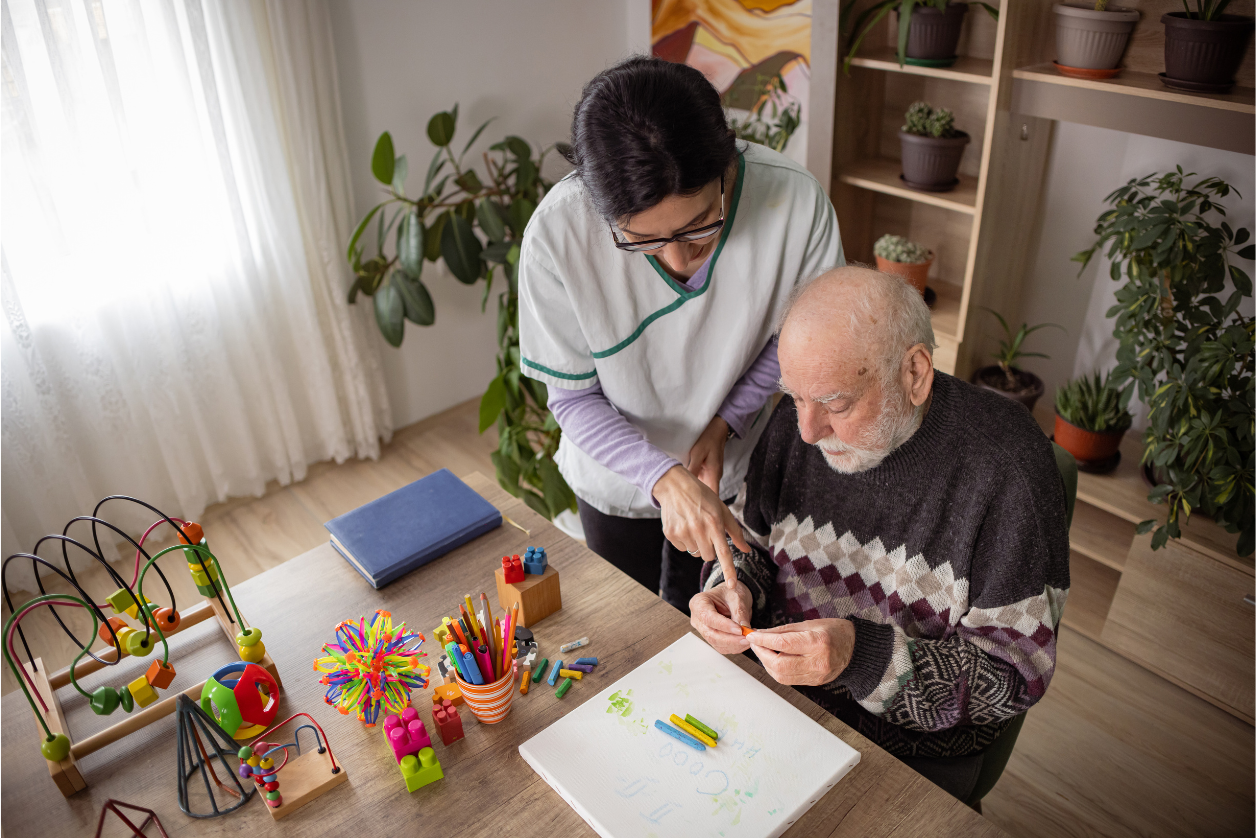Support
Creating a Dementia-Friendly Daily Routine: A Step-by-Step Guide to Support Loved Ones
A structured daily routine is essential in dementia care, providing comfort, predictability, and a sense of control.
Read more

Written by
Tyler Zanini, Founder at Memoryboard

If you're caring for a loved one with memory loss, dementia, or Alzheimer's, here's a practical, step-by-step guide to creating a dementia-friendly daily schedule:

Image description
Step 1: Identify Core Daily Activities
Begin by noting essential daily activities, such as:
Meals and snacks
Personal hygiene (bathing, grooming)
Medication timings
Physical activity and exercise
Leisure and social interactions
Step 2: Set Consistent Times
Regularity reduces confusion. Plan activities at the same times each day, such as meals at consistent intervals and bedtime at a regular hour.
Step 3: Include Relaxing Transitions
Transitions can be stressful. Schedule calming activities between more demanding tasks, such as a short rest or soothing music after meals, to ease transitions smoothly.
Step 4: Leverage Visual Aids
Use visual schedules or digital memory boards that display the day's activities clearly. Visual aids help reinforce the schedule without requiring constant verbal reminders.
Step 5: Personalize the Schedule
Tailor activities to the person's interests and past routines. Including familiar hobbies or preferred tasks can significantly enhance comfort and engagement.
Step 6: Allow Flexibility
While structure is crucial, flexibility is also necessary. Dementia symptoms can vary daily. Adjust the schedule as needed based on mood, energy levels, or unexpected events.
Step 7: Monitor, Adapt, and Support
Observe how your loved one responds to the schedule. Adjust timings, activities, or approaches to find what works best, ensuring ongoing relevance and effectiveness.
Example Dementia-Friendly Daily Routine:
Morning:
Wake up, gentle exercise, breakfast, personal hygiene
Late Morning:
Leisure activity (puzzles, art), medication reminder
Afternoon:
Lunch, rest/nap, social or outdoor activities
Evening:
Dinner, quiet leisure activities (music, reading)
Night:
Prepare for bed, calming routine (soft lighting, music), bedtime
Conclusion
A thoughtfully structured daily routine significantly improves the wellbeing of those with dementia. With careful planning and gentle consistency, caregivers can create supportive environments that enhance comfort and quality of life.
Explore how Memoryboard can uniquely support clearer communication, provide comfort, and strengthen connections with your loved ones today.
Stay connected. Join our list for updates, tips, and special offers!
Email address
Sign up
More from the blog
Read more helpful tips about connecting with your loved ones from the team at Memoryboard.
Empower people with memory loss
Memoryboard enhances daily life and strengthens connections



